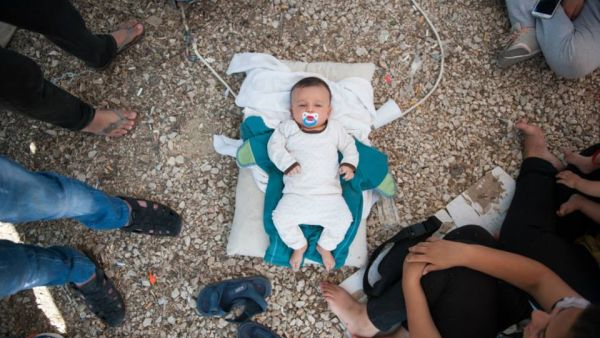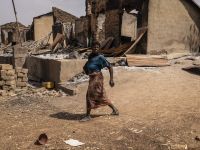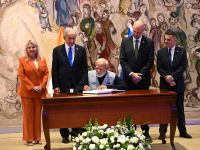Piper Perabo, a young American actress most known for her lead role in the 2000 romantic comedy, Coyote Ugly, portrayed a less humorous and more depressing reality in her role as partner to the International Rescue Committee and WhoSay.
Travelling to Greece to meet Syrian refugees in their camps, she recounted her experiences in a series of insightful articles, and uncovered the misconceptions surrounding what the Syrian refugees are actually going through.
To start off, she slams the world for its ignorant use of the word "migrant" as opposed to "refugee" when referring to Syrians fleeing their country amidst war and death.
"Let's set the record straight: Migrants are people who make a conscious decision to leave their countries to seek a better life elsewhere… Refugees are forced to leave their homes because of conflict and are therefore protected under international laws augmented after World War II," she says.
In her article, Parebo quotes a Syrian store owner who summed up the general sentiment of the Syrian refugees: "I love my country, but it's not safe."
Then, she singles out all those loud and dramatic people shouting about "how dangerous it is to allow in Syrian refugees," saying that they are ill-informed and unrealistic.
"People with wildly overblown fears are setting the tone of the debate about this crisis and, as such, are distorting facts. The United States will not recognize persons who have participated in war crimes and violations of humanitarian and human rights law, as refugees. They are specifically excluded from these protection laws."
Perabo goes on to describe her initial impressions upon meeting refugees in Kara Tepe, an overcrowded (4,500 people above capacity) and unsanitary (16 bathrooms and lots of rats) transit camp in Lesbos, Greece whose Turkish name fittingly translates to "dark hill."

Photo: Actress Piper Perabo in a campaign to support school girl power. (Instagram)
According to the actress, a surprising number of the refugees spoke perfect English, and left behind their professions as teachers, translators, businessmen, and factory managers. Speaking with them, she felt their desperation and serious need to venture out of their country into a world where they are referred to as "migrants."
"Most people told me they didn't want to leave Syria but were forced to abandon their homes because of the danger. Also, they couldn't operate their businesses, their water supply dried up, and their electricity was shut off. Because of the war, their children hadn't been able to go to school in two years. By this point, winter was imminent and they had lost hope that the war would end. Living in Syria was hell and they couldn't wait any longer."
The ultimate dream of these unfortunate and innocent families is to meet up with their families abroad. With relatives all over Europe, many plan to continue their arduous journeys until they can meet a familiar face and regain a sense of family, love, and support, regardless of how far they have to roam.
In other cases, families were faced with the decision to abandon each other or remain in danger.
"One older woman confided to me that she was forced to leave her husband behind because he was an amputee unable to make the arduous journey. One of their children stayed behind to help him while the rest fled in hope of finding a safer place."
In a final note, Parebo appeals to our deeper emotions and calls upon our consciences to give the Syrian refugees the respect, dignity, and attention that they deserve.
"These people, who could easily be you and me, have been forced to flee their homes in order to survive. The least we can do is educate ourselves about what's really going on, report their stories accurately, and treat them with dignity and respect."







